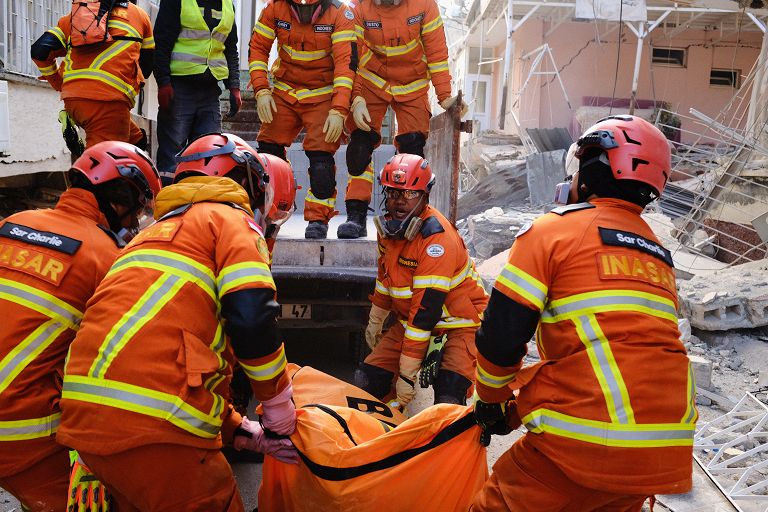Turkey, which fights every day to wrest lives from the rubble left by the earthquake, which saw over 40,<> deaths and dozens of cities and towns wiped out, is the same that in three months should go to vote to choose the next parliament. Whether the elections should be postponed or not is not, however, just a question of organization, but could profoundly affect their outcome. They could even hasten the end of the political parable of current President Recep Tayyip Erdogan.
First of all, the facts: Turkey's Supreme Electoral Council has not received any request to postpone the upcoming general elections due to the recent earthquakes, a representative of the opposition Republican People's Party told RIA Novosti. Turkey's Haberturk broadcaster reported that general elections in the country could be postponed for a period of six months to a year, with the Supreme Electoral Council expected to take the corresponding initiative at the request of the ruling party. But at the same time Turkish President Recep Tayyip Erdogan's statement that he needs a year to restore all the houses destroyed by the earthquakes could signal his desire to postpone the elections.
Many of the experts involved in the issue predict that the elections will be postponed to June, the last possible date if the Turkish constitution is respected. For their postponement beyond June, the government would need a two-thirds majority in parliament, implying that dozens of opposition MPs would vote in favor of such an option.
Berk Esen, a professor of political science at Sabanci University, told AFP: "The earthquake will be a turning point not only for the government, but also for the opposition," which has not yet announced the name of its candidate. And it's not just because of the earthquake.
Oppositions still without a candidateKemal Kilicdaroglu, leader of the Republican People's Party (CHP), the largest opposition formation, intends to run against Erdogan. But according to some sources, one of the main figures of the alliance, Meral Aksener, founder of the Good Party, nationalist and secular, would have opposed it. Kilicdaroglu, 74, does not appear in the polls as the best to beat the outgoing head of state, compared in particular to the CHP mayors of the capital Ankara, Mansur Yavas, and Istanbul, Ekrem Imamoglu.
The postponement between economic concerns and surveysTurkish President Recep Tayyip Erdogan, for his part, has not said a word since the day of the earthquake about the elections scheduled for May 14, and so even within his party, the AKP, rumors of a possible postponement are beginning to circulate.
Valeria Talbot, head of the Middle East and North Africa Observatory at ISPI, in a recent interview said "In fact there is an objective problem in the ten provinces affected by the earthquake. It is unlikely that the conditions will be created between now and mid-May to allow people to vote. The possibility of postponing the elections is being discussed and, given the situation, it could be an option." He added: "The humanitarian crisis represents an additional challenge for Erdogan and his party. Already in the last year the consensus towards Erdogan had eroded, according to the polls, mainly due to galloping inflation and the economy has always been the thermometer of consent to Erdogan. It was when he was prime minister. Already in 2019, due to the difficulties of the economy, the AKP party lost the main cities, such as Istanbul and Ankara".
Erdogan's fateIt seems that in recent months Erdogan has climbed a bit 'the slope reaching 45% of the votes, but not enough to get him elected in the first round. In this context, the oppositions, "although they have united, have not yet presented a challenger and have not so far posed themselves as an alternative, even if the scenario remains open", concluded the expert.
The lack of alternative to Erdogan was also underlined by Federico Donelli, professor of International Relations, at the University of Trieste, who highlighted the "backlash at the political level", or "the shortcomings and slowdowns in the interventions, admitted by Erdogan himself, which will have a political fallout". According to the professor from Trieste, "both the economic crisis and the regional geopolitical situation, as well as the damage of the earthquake in the medium and long term lead us to think that the political situation of instability could be viewed negatively by the Turkish electorate".
The arrest, in the aftermath of the earthquake and in favor of the camera, of a hundred builders allegedly responsible for having built buildings of tissue paper, could be a boomerang for Erdogan. He reminded the vast majority of citizens that they too live in similar conditions and that real estate speculation was fostered, and the lack of controls tolerated, precisely in the long years of power of the Sultan.
Getty
Earthquake in Turkey, rescue operations 15/02/23

